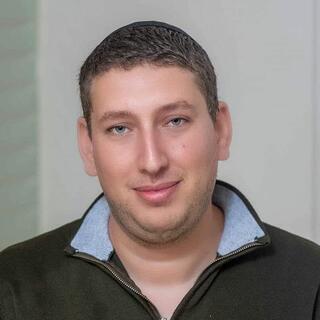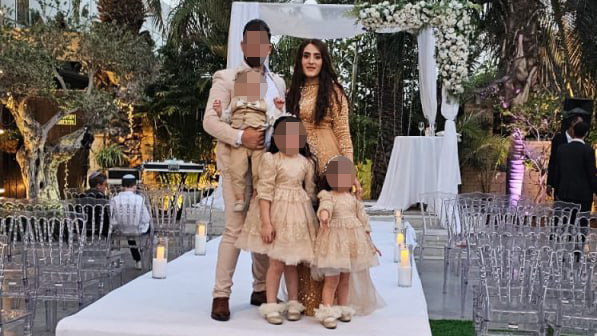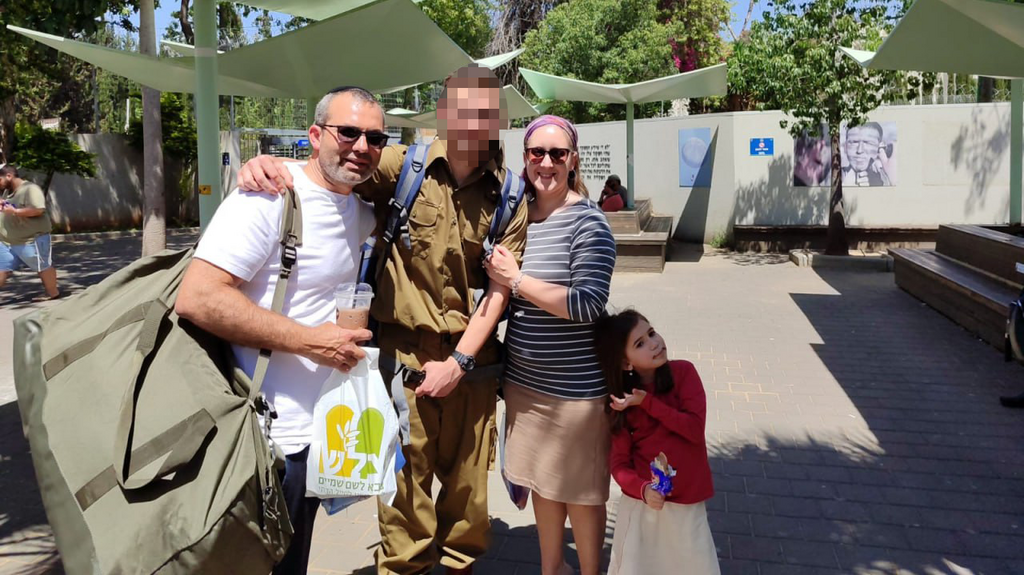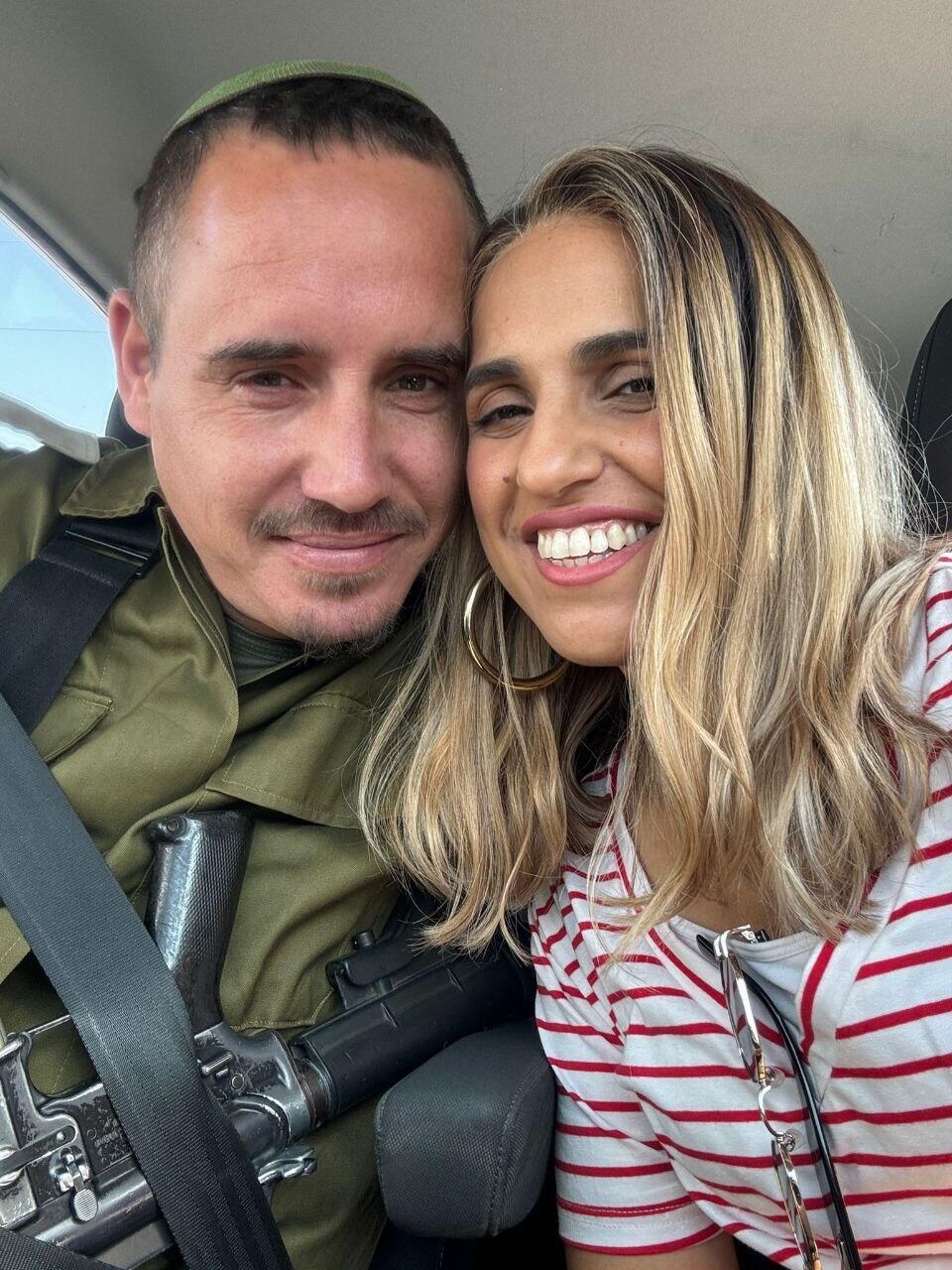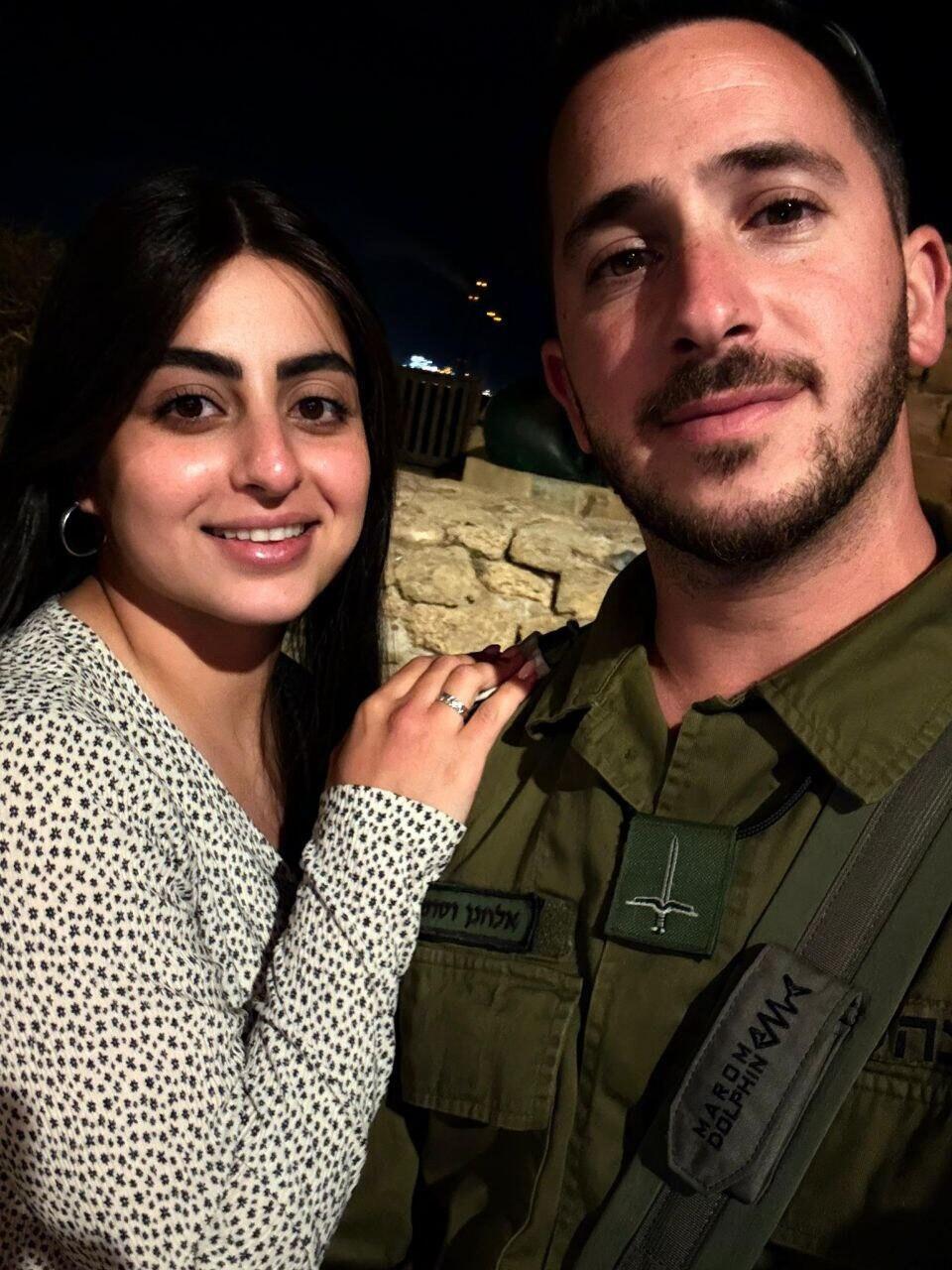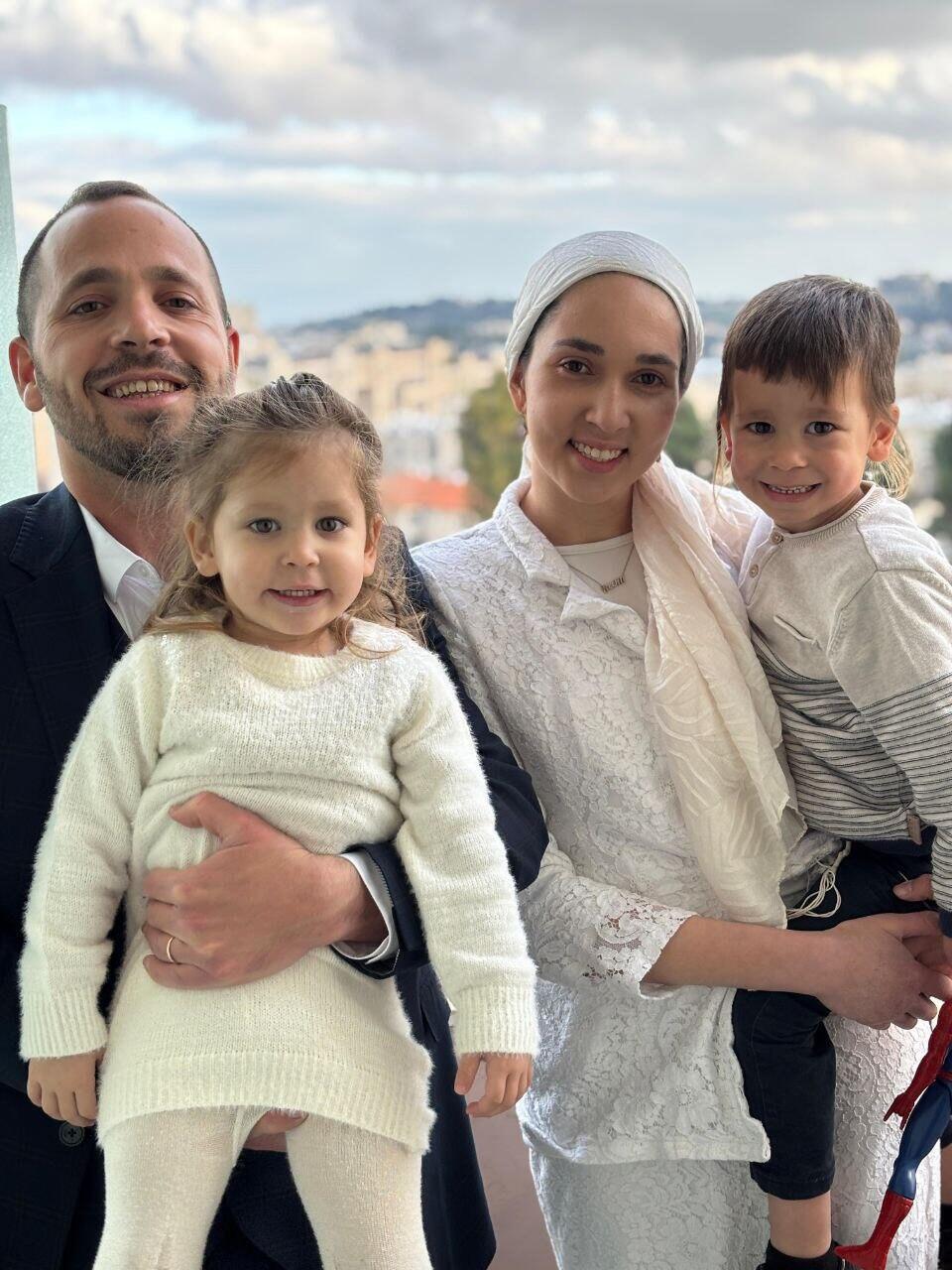In many communities, mothers of soldiers or wives of reservists find support among others in similar circumstances. But for the wives and mothers of Haredi (ultra-Orthodox) IDF soldiers—both in regular service and reserves—that sense of belonging is often missing. These women frequently find themselves alone as they send their loved ones off to the army, facing social isolation and practical challenges.
“Two weeks ago, my husband enlisted in the Hashmonaim Brigade,” says Oshrat Vaknin, a mother of three whose husband, Yochai, surprised her with his decision to join the new Haredi combat brigade. “In his family, military service is extremely uncommon. But he felt a need to be part of the defense effort, and I’m his support system in everything.”
The couple lives in Netanya in a Haredi neighborhood, and they’re keeping Yochai’s enlistment a secret. “His family doesn’t know— they’re very religious. When people ask where he is, I say he’s at work. I’m a soldier’s wife, and that’s something you have to get used to. I occasionally get help from my mother, but most of the responsibility falls on me. It was his decision, and I support him.”
In Kiryat Ye’arim, a Haredi town, Miri Mizrahi’s sons walk to synagogue in suits and hats like all the other boys in the neighborhood—but on Sundays, two of them put on uniforms and head to their bases. “We’re a Haredi family living in a religious area, and so are our extended families,” she says.
“We were never against military service despite the sensitivities in the Haredi sector. My second son had been thinking about enlisting since age 15. My eldest hadn’t considered it until the war broke out, when he told me, ‘Mom, I can’t just sit here.’ That’s when we knew he had to enlist and become a combat soldier.”
Her eldest joined the Kfir Brigade through the Netzah Yehuda program, and her second son joined the paratroopers. “We feel fortunate to live in Israel and be able to defend it. We’re proud of that,” Mizrahi says. “Maybe my son’s friends will see him and be inspired. But I’m not sure the army is fully prepared for Haredi soldiers. Netzah Yehuda offers a spiritual framework, but more yeshiva students need access to these kinds of tracks.”
Yechiel Berg, a resident of the Chabad neighborhood in Lod, has spent nearly two years serving off and on as a casualty identifier at the Shura base. In that time, his wife Ruti—a wig stylist—has had to juggle the family business and the kids on her own. “My husband enlisted at 19 as a combat soldier in Netzah Yehuda,” she says. “In Chabad, the norm is for boys to leave yeshiva at 18 or 19 and spend a year in the U.S. at the Rebbe’s yeshiva. He chose to enlist instead. When the war started, he was called up to the identification unit and worked long, grueling days in southern Israel.”
Ruti admires her husband’s commitment. “He’s doing very important work. Even during peacetime, he serves as a coordinator for the Netzah Yehuda association, helping other Haredi soldiers with their enlistment. During the war, I had to manage everything at home. I couldn’t focus on the business, marketing, or operations. Each child had their own needs. Some of my friends understood what I was going through, but many didn’t. I felt quite alone.”
Last Shabbat, while reservists in the Hashmonaim Brigade spent the weekend on base, the unit organized a parallel Shabbat gathering for their wives and children. Among them was Yael Wasserman, wife of Elchanan, a senior recruitment officer in the brigade and a career soldier who previously served in combat.
“This Shabbat was the first time I experienced, together with other women, what I usually feel on my own,” she says. “I grew up in a Haredi home. I didn’t do military or national service—that’s how I was raised. For Elchanan, it’s even more complicated. At first, his family didn’t accept it, and he was even considered a lone soldier. We live his role every day at home. He provides nonstop support to Haredi young men who want to enlist, and I think it’s amazing.”
Get the Ynetnews app on your smartphone: Google Play: https://bit.ly/4eJ37pE | Apple App Store: https://bit.ly/3ZL7iNv
“Today there are army tracks that allow Haredi boys to enter and leave the military while remaining religious, and that’s significant,” Yael adds. “Every boy who chooses to enlist is crossing a line. The rabbis who support them do so under the radar and don’t speak out publicly, but I believe there’s a deep desire to serve the people of Israel. Today, both our families are proud and supportive. People understand there’s a real need for every person who joins—it's all for Am Yisrael.”
Natalie Cohen, a member of the Breslov Hasidic sect, lives with her husband, Avraham Nachman Cohen, and their two children. “It was really important to him to contribute,” she says. “He served in Netzah Yehuda but wasn’t called up for reserve duty. Still, he insisted on getting an assignment. Among his friends, he’s the only one serving in the reserves. Even in our neighborhood, there aren’t many others in the military. I handle most of it alone.”
“I see military service for Haredim as a possibility—if the army makes room for it. Some yeshiva students aren’t spending all day in the study hall, even if they’re officially registered. In the future, I’d love for my son to be a Torah scholar. But if not, I want him to enlist in a unit that respects his lifestyle.”


